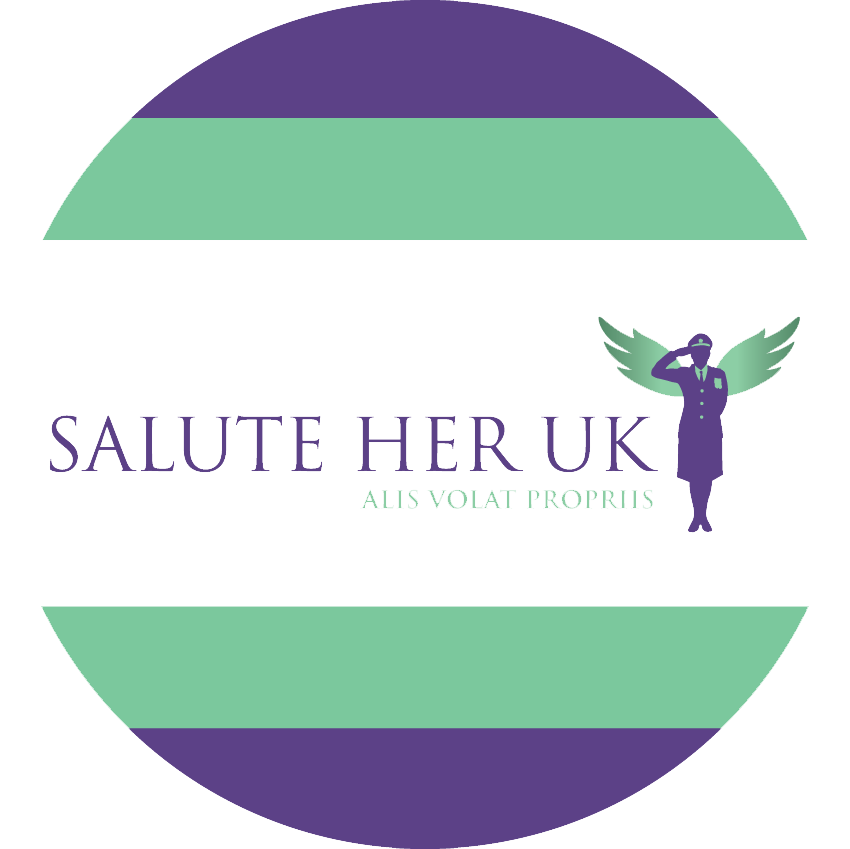
Research
Unique, person-centred insight into the lived experiences of women veterans
Salute Her UK believe that the best people to talk to about service development and improvement are those with 'lived experience. The term 'lived experience' is used by many in a variety of settings from academia and research, to the planning and delivery of health and social care.
In the mental health field consultation with survivors and activists helps us to better understand the systemic, cultural and individual challenges faced by those hidden and/or invisible populations.
Our research has given us a unique, person-centred insight into the lived experience of women veterans, before, during and after service. We will actively and meaningfully involve women with lived experiences in everything we do so that the marginalised are included and the silent are given a voice.
This ethnographic study (PDFs below) illustrate the lived experience of women veterans. It gives women veterans a voice by which they can share their experiences, whilst generating a meaningful discussion around service improvement. It also recommends the implementation of practical solutions to improve health and social care support after military service, system change within the military and a rigorous review of current practice in response to complaints and investigations.
No Man’s Land
This ‘grass roots’ research project aims to raise the profile and celebrate the contribution of women in the Armed Forces, past and present. In 2016, the then Prime Minister David Cameron confirmed that women would now be able to serve in close combat roles in operational tours across the globe. Women serving in the British Army are now able to transfer into infantry roles. They have, however, served alongside their male counterparts in a vast array of occupations since World War Two and more recently in Iraq and Afghanistan.
Exit Wounds Report
It wasn’t that long ago when serving members of the LGBT+ community could be dismissed from all branches of the UK Armed Forces on the basis of their sexuality. Prior to 2000, if members of the UK military were found to be lesbian, gay or bi-sexual they could face court martial, be expelled from the military losing medals, pension rights and/or face incarceration, and to add insult to injury, a criminal record. At the very least they would face prejudice, discrimination, homophobic abuse, humiliation and for some, physical violence and sexual assault.
Bizarrely there are no exact figures, but it is estimated that thousands were dismissed from the UK military on account of their sexuality. Figures are masked because many were medically discharged, as ‘homosexuality’ was at that time, classed as a mental health disorder until that definition was repealed by the World Health Organisation in 1990.
For those individuals discharged from the UK armed forces because of their sexuality, the trauma is both enduring and hurtful, for others their lives have been traumatically defined by the additional experience of being physically and sexually assaulted and in some cases raped, by colleagues in a twisted, barbaric and brutal attempt to change their sexual orientation. Those traumatised by such experiences struggle to come to terms with these events and experience shame, guilt and the destruction of their sense of self, which in turn destroys their loyalty and affiliation with an institution that has both abused and betrayed their trust.
Note: “Copyright @ 2022 Forward Assist UK. All rights reserved. Any unauthorised use, copying or reproduction of this material publication and content will constitute an infringement of copyright”
To use any content on this website seek permissions from Forward Assist. Content used must acknowledge original IP as Forward Assist - Salute Her UK
Forgotten Women Veterans (in the CJS)
Labour Friends of the Forces thanks Forward Assist and Salute Her UK for producing the Forgotten Women Veterans report, and Community for funding it. We also thank all the women veterans who gave their time to share their experiences with the research team at Salute Her UK; your contributions will help improve the lives of other women veterans across the UK. Conducting the research and analysis that went into this report has highlighted a shortage of existing UK specific research into the experiences of women veterans, particularly when compared to the research picture in North America. This is a gap we hope future projects will address. Notwithstanding these gaps, this report contains useful and important lessons for, among others, UK and devolved administrations, police forces and the criminal justice system. We hope it is widely read.
– Toby Dickinson, Co-Chair Labour Friends of the Forces
No Man’s Land 2
The overall aim of this study was to present further evidence in support of the lived experience and hidden narratives of female serving personnel and women veterans since the publication of No Man’s Land in 2019. This report provides serving women and veterans with a platform to have their collective voice heard as well as share their experiences. The report recommends the implementation of practical solutions to improve health and social care support for victims/survivors of Military Sexual Assault and associated trauma.




